The focus of Dylan Miller’s PhD research in psychology and neuroscience can be downright disturbing. Parasitic wasps turning caterpillars into zombie hosts for their young to devour from the inside out. It can be frightening and fascinating, he says, which is why he joined Dal’s OpenThink Initiative to give the public a glimpse into this small corner of nature.
Miller is one of 13 researchers selected from across the university to join the 2021 cohort of OpenThink, a program that gives future thought leaders the training and platform they need to influence public discourse and policy. Miller and his OpenThink peers just completed a bootcamp of expert-led workshops aimed at developing them into academic advocates with sessions focused on social media engagement, working with journalists, op-ed writing and data visualization.
Today, the OpenThink blog will launch with their first round of monthly articles, addressing everything from burnout in intensive care units, to organized crime during the pandemic, to the implications of the GameStop stock surge. Each article the OpenThinkers publish throughout the year will provide a window into their ideas, opinions and insights as they develop.
“I want to give people a new appreciation for how unfathomably complicated yet well-organized the natural world is,” says Miller. “The parasitic wasp is an example of an incredibly successful organism that has developed a ruthless but breathtakingly intricate system that allows for life to thrive. To provide people a window into that world is a thrill.”
Leading-edge thinkers
At the beginning of their research careers, PhD students generate some of the most innovative ideas at Dalhousie. With OpenThinkers representing disciplines across the university from law and medicine to agriculture and political science, the program provides a unique view into the university’s leading-edge thinking in areas that affect our lives most.
“Our PhD students are at the forefront of creating new knowledge,” said Marty Leonard, dean of the Faculty of Graduate Studies. “They work side by side with our faculty to generate the ground-breaking discoveries that take place across our campuses every year. It’s wonderful to have this chance to empower them to share their innovations with the world.”
Jee In Kim, an Interdisciplinary PhD student, is using OpenThink to raise awareness of a startling fact that won’t come as welcome news to an already COVID-19 weary public. In her first OpenThink article she notes that we are on the verge of the post-antibiotic era where antibiotic drugs no longer control common bacterial infections.
“We sometimes get news when people die from antibiotic resistant bacteria in hospitals, but there’s not a lot of awareness about the scope of the problem and its causes. Superbugs are the result of over prescription of antibiotics, the use of antibiotics in agriculture and the leaching of antibiotics into the environment through wastewater, among other causes,” says Kim. “The risks of inaction are substantial. A report by the British government notes that if we don’t start addressing the problem, we’ll see 10 million people die per year by 2050.”
This is the kind of information the public can expect to learn from OpenThinkers who are keen to help people navigate the complexities of life, says the program’s academic director and Dalhousie professor Dr. Lynne Robinson.
She says, “In a world with a fractured and polarized media landscape where fake news competes for our attention, our OpenThinkers aim to share evidence-based ideas and opinions that can help us get a handle on reality.”
Meet the 2021 OpenThinkers and learn about their research in their own words
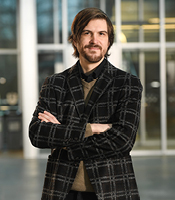 Michael Cameron, English PhD (’22)
Michael Cameron, English PhD (’22)
Putting a post-apocalyptic perspective on politics
“Post-apocalyptic literature acts as a mirror for our political and scientific anxieties. A study of these texts can assist in thinking through our contemporary political impasses.”
Read his blog and follow him on Twitter
 Leah Carrier, Nursing PhD (’23)
Leah Carrier, Nursing PhD (’23)
Investigating Indigenous ways of nursing
“My research explores how Indigenous nurses draw on their identities and Indigenous ways of knowing in their nursing education and transition to nursing practice.”
Read her blog and follow her on Twitter
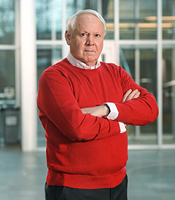 Grant Curtis, Political Science PhD (’23)
Grant Curtis, Political Science PhD (’23)
Focusing on the fractures that lead to state failure
“My research examines how the international community has attempted to bolster failed states, with particular attention to why such efforts have been largely unsuccessful.”
Read his blog and follow him on Twitter
 Hillary Ferguson, Interdisciplinary PhD (’23)
Hillary Ferguson, Interdisciplinary PhD (’23)
Investigating burnout in critical care medicine
“I am looking at the levels of increased exhaustion, cynicism, and inefficacy that overcome health providers who are faced with the harsh reality of working on an intensive care unit.”
Read her blog and follow her on Twitter
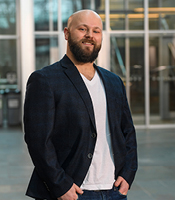 Michael Giacomantonio, Pathology PhD (’22)
Michael Giacomantonio, Pathology PhD (’22)
Bringing metabolism into medicine
“You are what you eat, right? What if I told you that tracking your metabolism can do so much more than simply get you into those skinny jeans… it may just save your life."
Read his blog and follow him on Twitter
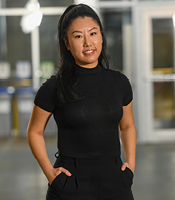 Jee In Kim, Interdisciplinary PhD (’23)
Jee In Kim, Interdisciplinary PhD (’23)
Examining superbug evolution
“We need to enhance our understanding of how bacteria respond to antibiotics’ stress to prevent further resistance development.”
Read her blog and follow her on Twitter
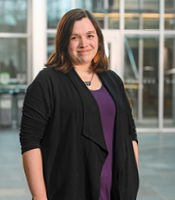 Rachel McLay, Sociology PhD (’23)
Rachel McLay, Sociology PhD (’23)
Surveying the state of politics in Atlantic Canada
“While addressing ‘big questions’ about democracy, social movements and the political challenges facing the public today, I consider what these global problems mean for Atlantic Canadians.”
Read her blog and follow her on Twitter
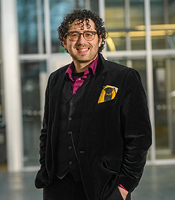 Dylan Miller, Psychology and Neuroscience PhD (’23)
Dylan Miller, Psychology and Neuroscience PhD (’23)
Probing the practices of parasitic wasps
“Parasites have had millions of years of evolution to perfect methods for targeted and absolute behaviour control. Understanding these methods could illuminate new tools for neuroscience research.”
Read his blog and follow him on Twitter
 Lydia Muyingo, Clinical Psychology PhD (’24)
Lydia Muyingo, Clinical Psychology PhD (’24)
Investigating alcohol abuse in immigrants
“I want the world to understand that adapting to a new culture comes with many challenges including financial strain, social isolation and discrimination that may impact an individual’s alcohol use.”
Read her blog and follow her on Twitter
 Megan Rector, Interdisciplinary PhD (’23)
Megan Rector, Interdisciplinary PhD (’23)
Examining eco-certification in aquaculture
“Over half of the seafood we eat comes from aquaculture. That’s why I’m interested in how eco-certification can support environmentally, socially and economically sustainable aquaculture.”
Read her blog and follow her on Twitter
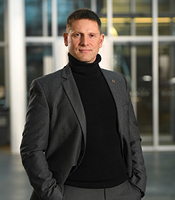 Bjarni Sigursteinsson, Law PhD (’23)
Bjarni Sigursteinsson, Law PhD (’23)
Addressing the complexity of organized crime
“Organized crime is a complex problem, and just like in hockey, the interplay of multiple actors and factors generates success. My research examines how they operate, to identify and remove facilitators, raise barriers, and expose vulnerabilities.”
Read his blog and follow him on Twitter
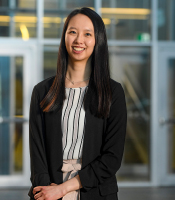 Karen Tang, Clinical Psychology PhD (’25)
Karen Tang, Clinical Psychology PhD (’25)
Advancing the academics of gaming addiction
“In mid-2018, the World Health Organization added gaming disorder to the International Classification of Diseases, meaning video game addiction is now a very real and clinically diagnosable condition. However, we still know very little about this disorder.”
Read her blog and follow her on Twitter
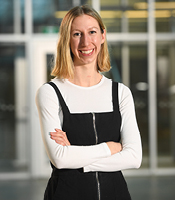 Sophie Watts, Agricultural Sciences PhD (’23)
Sophie Watts, Agricultural Sciences PhD (’23)
Breeding better sustainable apples
“We need to create apples that can withstand climate change temperatures, pests and diseases and that are of course still tasty. However, our ability to create improved apples is limited because we keep growing and relying on a few select varieties.”

